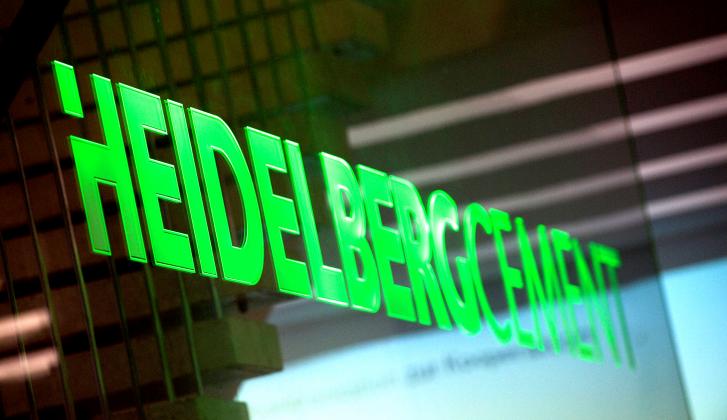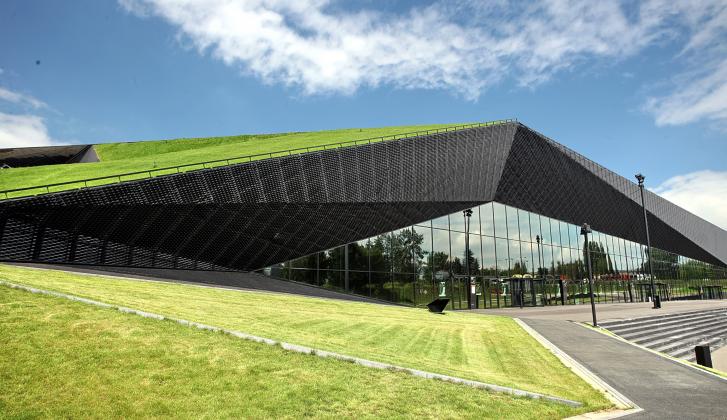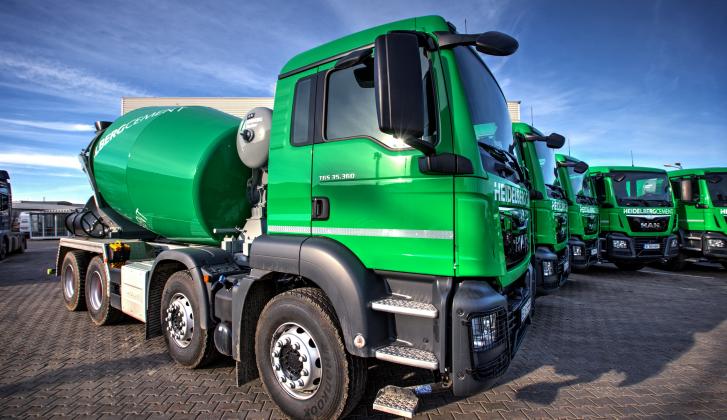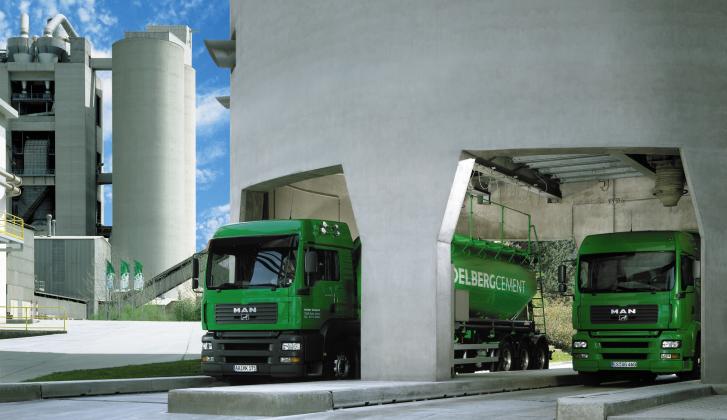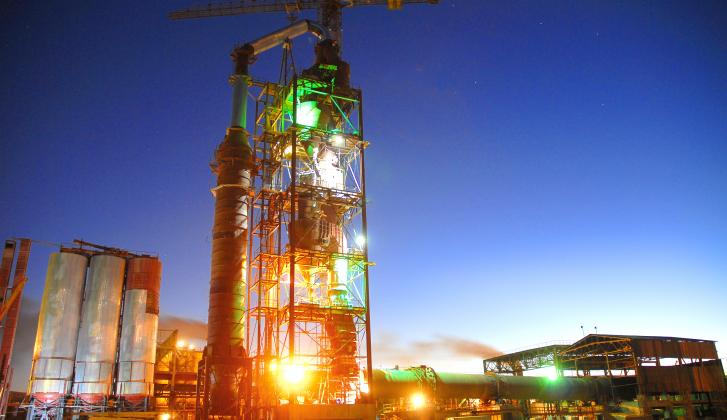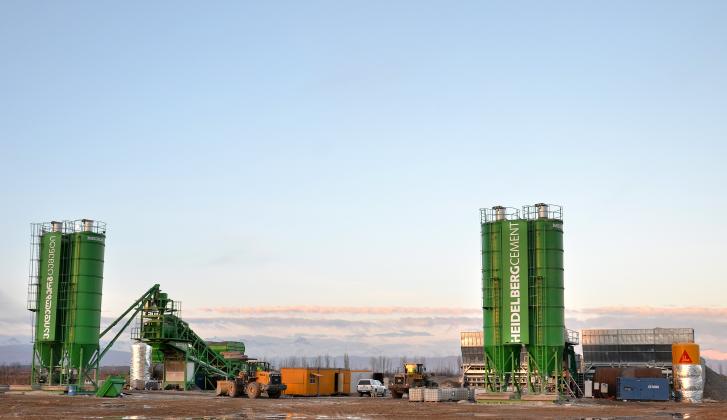18 February 2019
HeidelbergCement’s Kaspi Modernization Project Nears The Finish-line
Construction of HeidelbergCement’s new production line in Kaspi is under way. This modernization project entails the construction of a state-of-the-art dry line of clinker production that will in turn ensure high efficiency of the enterprise by significantly reducing production costs for the company. According to the senior management, the project, along with many other benefits, involves the installation of EU-standard filters as well as equipment for permanent monitoring of emissions, enabling HeidelbergCement to control the levels of dust and nitrogen, sulfur and carbon oxide releases.
“The project has several-fold advantages: efficient production requiring less energy per ton of clinker; increased capacity of 3,000 tons per day that outweighs the entire production currently carried out in all kilns in Kaspi; enhanced clinker quality control; and centralized production system”, explained Mr. Zaza Sadunishvili, the Technical Director of HeidelbergCement Georgia.
Producing clinker using the dry method is much more energy efficient compared to the wet method. In the wet method, mixing of raw materials takes place in a mill basin with 35% to 50% of water, whilst during the dry method, raw materials are mixed in dry state in blenders. The dry method excludes the need to evaporate water from raw materials afterwards, thus saving the expense of thermal energy needed for water evaporation. The dry method of clinker production utilizes about 60% less fuel. Consequently, less gas emissions end up in the atmosphere. To be more precise, owing to this new technology, gas and dust emissions will be reduced, while at the same time increasing the production by 30%. This is guaranteed with the help of installing the EU-standard filters as well as equipment for permanent monitoring and control of emissions. It can be proudly stated that after the completion of the project, there will be no other company in Georgian heavy industry with this level of ecological control line.
Kaspi Modernization project currently employs 26 engineers on site full-time, but this number is augmented as per need. Besides this core team, around 50 engineers that are based outside Georgia work on this initiative. This safeguards the conformity to high-quality standards for the production process and as a result, guarantees high efficiency of the enterprise. Besides utilizing state-of-the-art technologies, the project is significant for Georgian economy as well. It aims to contribute to the improvement of country’s trade balance and ensure better environmental management of local natural resources.
Preparatory works for the Kaspi Modernization Project were initiated in September 2016. The total investment of the Kaspi Plant Technological Modernization is USD 100 Million. The new production line will be operational in December 2018 and the full completion of the project is expected in March 2019. Kaspi Modernization Project enabling HeidelbergCement Georgia to proudly comply with the highest requirements of environmental protection regulations of the EU. Project is supported by Co-Investment Fund (“GCF”) and Hunnewell Partners.




